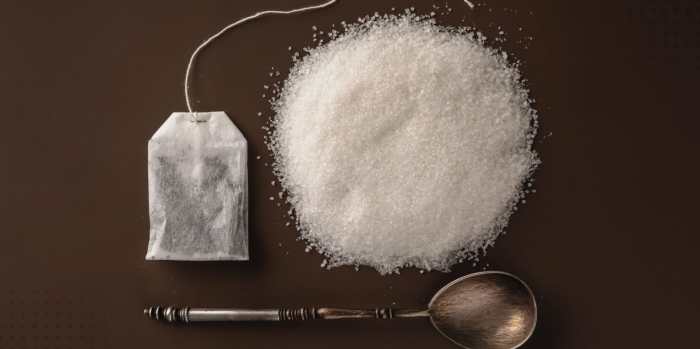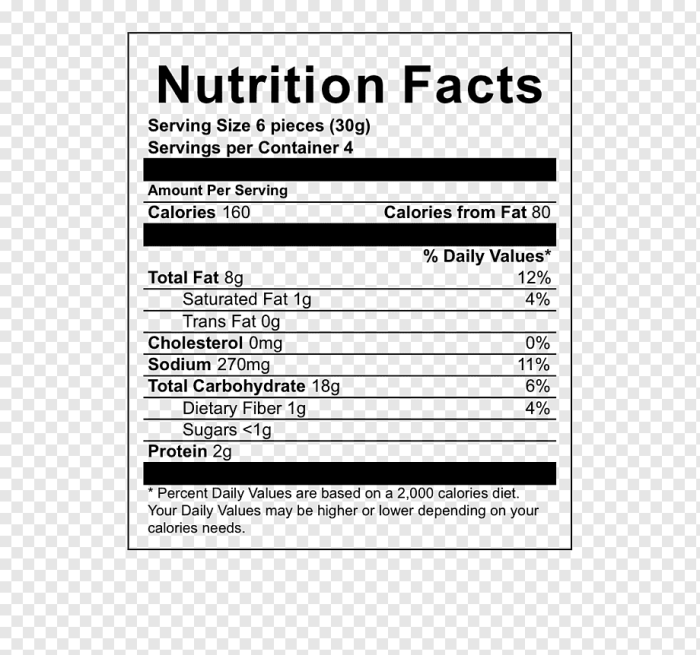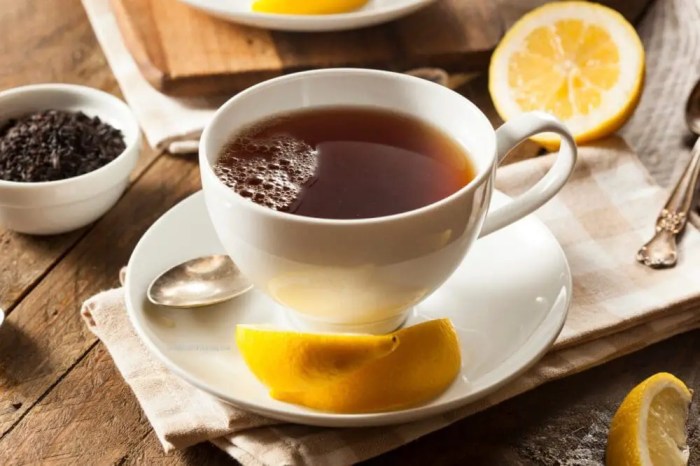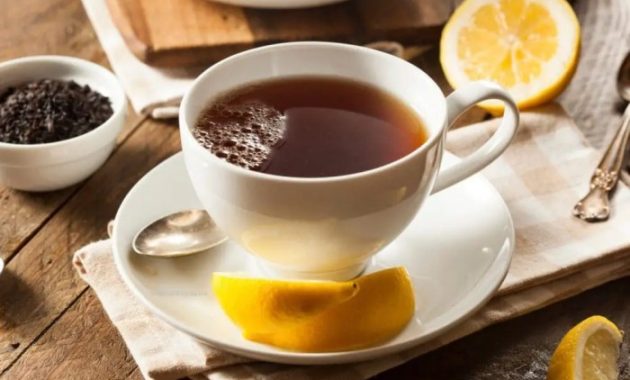Types of Unsweetened Tea: Unsweetened Tea Nutrition Facts

Unsweetened tea nutrition facts – The world of unsweetened tea is vast and varied, offering a spectrum of flavors and health benefits. From the robust notes of black tea to the delicate sweetness of white tea, the choice is as diverse as the cultures that have cultivated these leaves for centuries. Understanding the different types allows for a more nuanced appreciation of this ancient beverage.
Common Unsweetened Tea Varieties, Unsweetened tea nutrition facts
The following list details some of the most popular types of unsweetened tea, highlighting their unique characteristics. Each variety offers a distinct flavor profile and boasts a unique history and method of cultivation.
- Black Tea
- Green Tea
- White Tea
- Oolong Tea
- Herbal Tea (Tisanes)
Characteristics of Unsweetened Tea Types
Each tea type possesses unique qualities derived from its origin, processing, and leaf type. These distinctions create a diverse range of flavors and aromas.
- Black Tea: Known for its strong, malty, and sometimes astringent flavor, black tea undergoes full oxidation, resulting in its dark color and robust taste. Origins span globally, with notable varieties from Assam (India), Darjeeling (India), and Ceylon (Sri Lanka).
- Green Tea: Characterized by its grassy, vegetal notes and subtle sweetness, green tea is minimally processed, retaining its vibrant green color and delicate flavor. China and Japan are prominent origins, each boasting distinct regional variations.
- White Tea: The least processed type, white tea offers a light, delicate flavor with hints of sweetness and floral notes. Its young buds and leaves contribute to its pale color and subtle taste. Primarily cultivated in China.
- Oolong Tea: Oolong tea occupies a middle ground between green and black tea in terms of oxidation. This results in a wide range of flavor profiles, from light and floral to dark and robust. Taiwan and China are significant producers of oolong tea.
- Herbal Tea (Tisanes): Technically not true teas as they don’t come from the
-Camellia sinensis* plant, herbal teas are infusions made from various herbs, flowers, fruits, and spices. They offer a diverse array of flavors and are naturally caffeine-free. Examples include chamomile, peppermint, and rooibos.
Caffeine Content Comparison of Unsweetened Teas
Caffeine levels vary significantly depending on the type of tea, brewing method, and leaf quality. The following table provides a general guideline. Individual caffeine content can fluctuate.
| Tea Type | Caffeine Level (mg/cup) | Origin | Flavor Profile |
|---|---|---|---|
| Black Tea | 40-120 | Various (India, Sri Lanka, Kenya) | Malty, robust, astringent |
| Green Tea | 20-40 | China, Japan | Grassy, vegetal, subtle sweetness |
| White Tea | 15-30 | China | Delicate, floral, slightly sweet |
| Oolong Tea | 25-50 | Taiwan, China | Variable, ranging from floral to robust |
| Herbal Tea (Chamomile) | 0 | Various | Floral, calming |
Nutritional Content of Unsweetened Tea

Unsweetened tea, a beverage enjoyed globally for centuries, offers more than just refreshment. Its nutritional profile, while modest in terms of calories, holds a surprising array of beneficial compounds, primarily vitamins, minerals, and antioxidants. Understanding these components allows us to appreciate the subtle yet significant contribution of tea to a balanced diet.
Unsweetened tea boasts minimal calories and carbohydrates, making it a refreshing, healthy beverage. For a protein boost to complement your tea, consider adding a side of boiled eggs; you can find detailed nutritional information on nutrition facts boiled egg white to make informed choices. Returning to tea, its antioxidant properties further enhance its health benefits, offering a delightful and nutritious drink option.
The nutritional value of unsweetened tea varies depending on the type of tea, the growing conditions, and the processing methods. However, some common components are consistently present.
Vitamins and Minerals in Unsweetened Tea
While not a significant source of calories or macronutrients, unsweetened tea contains several essential vitamins and minerals in trace amounts. These micronutrients play vital roles in various bodily functions, contributing to overall health and well-being.
- Fluoride: Some teas, particularly those grown in fluoride-rich soils, can contain small amounts of fluoride, beneficial for dental health. The exact amount varies greatly depending on the soil and processing.
- Manganese: An essential mineral involved in bone health, metabolism, and wound healing. The quantity is typically low but contributes to the overall mineral intake.
- Potassium: An electrolyte crucial for maintaining fluid balance and nerve function. The potassium content is generally modest in tea.
- Vitamin K: Important for blood clotting and bone health. The amounts present in tea are usually small.
- Vitamin C: An antioxidant vitamin that supports the immune system. The concentration is dependent on the type of tea and processing; some teas retain more Vitamin C than others.
Antioxidant Properties of Unsweetened Teas
The significant health benefits associated with unsweetened tea largely stem from its rich antioxidant profile. Antioxidants combat free radicals, unstable molecules that can damage cells and contribute to aging and disease. Different teas boast varying antioxidant compositions.
- Green Tea: Known for its high concentration of catechins, particularly epigallocatechin gallate (EGCG), a potent antioxidant linked to various health benefits, including reduced risk of heart disease and certain cancers.
- Black Tea: Contains theaflavins and thearubigins, antioxidants formed during the oxidation process. These compounds contribute to black tea’s antioxidant capacity.
- White Tea: Less processed than green or black tea, retaining higher levels of certain antioxidants, though the profile differs from other tea types.
- Oolong Tea: Occupies a middle ground between green and black tea in terms of oxidation, resulting in a unique blend of antioxidants with properties similar to both.
Nutritional Information of Unsweetened Teas
The following table provides a general overview of the nutritional information for a standard 8-ounce serving of various unsweetened teas. Note that these values can vary based on factors like tea type, brewing method, and water used.
| Tea Type | Calories | Carbohydrates (g) | Other Key Nutrients |
|---|---|---|---|
| Green Tea | 0 | 0 | Various antioxidants (catechins), small amounts of minerals |
| Black Tea | 0 | 0 | Theaflavins, thearubigins, small amounts of minerals |
| White Tea | 0 | 0 | Various antioxidants, small amounts of minerals |
| Oolong Tea | 0 | 0 | Combination of catechins and theaflavins/thearubigins, small amounts of minerals |
Preparing Unsweetened Tea

The art of brewing unsweetened tea lies in achieving the perfect balance of flavor and aroma, a delicate dance between water temperature, steeping time, and the type of tea leaf itself. Mastering this process unlocks a world of refreshing, naturally delicious beverages, free from the added sugars that often mask the true character of the tea. The following guidelines will help you craft the perfect cup, whether you prefer a hot brew or a refreshing iced tea.
Brewing Different Types of Unsweetened Tea
The brewing process varies slightly depending on the type of tea. Each tea leaf, with its unique characteristics, requires a specific approach to unlock its full potential. Over-steeping can lead to bitterness, while under-steeping leaves the tea weak and flavorless.
- Black Tea: Use freshly drawn, boiling water (212°F or 100°C). Steep 3-5 minutes in a teapot or infuser. Longer steeping times will yield a stronger, more robust flavor.
- Green Tea: Use water heated to around 170-180°F (77-82°C). Steep for 2-3 minutes. Higher temperatures or longer steeping times can result in a bitter taste.
- White Tea: Use water heated to approximately 170°F (77°C). Steep for 1-2 minutes. White tea is delicate and easily over-steeped.
- Oolong Tea: Water temperature and steeping time vary greatly depending on the oxidation level of the oolong. Generally, use water between 185-200°F (85-93°C) and steep for 3-5 minutes, adjusting according to the specific type of oolong.
- Herbal Teas (Tisanes): These aren’t technically teas as they don’t come from theCamellia sinensis* plant. Water temperature and steeping time vary widely; refer to the package instructions for best results. Generally, boiling water is suitable, and steeping times range from 5-10 minutes.
Making Iced Unsweetened Tea
Iced tea, a quintessential summer beverage, requires a slightly different approach to ensure a flavorful, refreshing drink. The key is to concentrate the tea brew to compensate for dilution by ice.
- The “Sun Tea” Method: Brew a strong batch of tea using the guidelines above. Pour the hot tea into a glass container, cover, and let it steep in direct sunlight for several hours (or longer, depending on the desired strength). Refrigerate before serving.
- The “Quick-Chill” Method: Brew a strong batch of tea using the guidelines above. Immediately pour the hot tea over ice in a pitcher or container. This method rapidly chills the tea, preventing excessive steeping.
- The “Refrigerated Brew” Method: Brew a strong batch of tea as instructed above. Allow the tea to cool slightly, then refrigerate for several hours before serving over ice. This allows for a smoother, less bitter iced tea.
Storing Unsweetened Tea
Proper storage is crucial to maintain the freshness and quality of your unsweetened tea, both brewed and unbrewed.
- Unbrewed Tea Leaves: Store loose leaf tea in airtight containers in a cool, dark, and dry place. Avoid exposure to moisture, light, and strong odors.
- Brewed Tea (Hot): Transfer brewed tea to an airtight container and refrigerate within two hours of brewing. It is best consumed within 24 hours for optimal flavor.
- Brewed Tea (Iced): Store iced tea in an airtight container in the refrigerator. It will typically stay fresh for 3-5 days, though the flavor may diminish over time.
Helpful Answers
Can unsweetened tea cause dehydration?
No, unsweetened tea is generally considered a hydrating beverage. However, excessive caffeine intake can have a mild diuretic effect.
Is iced unsweetened tea as healthy as hot unsweetened tea?
Yes, the nutritional content remains largely the same whether the tea is hot or iced. However, adding sweeteners to iced tea negates the health benefits.
Are there any potential side effects of drinking too much unsweetened tea?
Excessive consumption can lead to caffeine-related side effects like insomnia, anxiety, or digestive upset. Certain teas may also interact with medications.
Can unsweetened tea help with weight loss?
Some studies suggest that certain teas may boost metabolism, but unsweetened tea itself doesn’t directly cause weight loss. It’s part of a healthy lifestyle.

